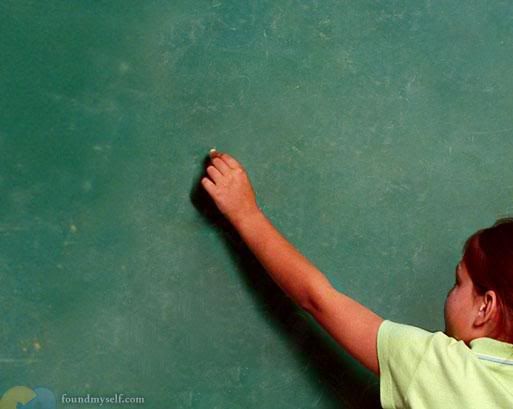A few days ago, I was startled out of my afternoon nap by a phone call from my high school friend, Jessica. We chit-chatted a while, and then she told me what had obviously served as a catalyst for her call.
"I'm reading the paper and they have an article about your mom."
"Oh..."
"
Your church is starting that prayer garden, you know? And they built a huge memorial 'in dedication to former member Debra Hartmann.'"
At this point, tears began welling in my eyes. I was touched by the actions of my former congregation, but also hurt that I had to learn about the dedication from a friend who happened to be reading the paper. I still don't even know if the memorial has been built or if the dedication has already taken place. Why hadn't the church contacted me or my grandparents? Had they just told my step-father, and if so, how come he didn't inform me?
Families are complicated on their own; before, I had birth-father and step-family issues to worry about. Now, I have legal guardians, separation of estate, and Social Security checks thrown into the mix. In short, it's been a tumultuous year-and-a-half. Unfortunately, my mother's death has torn our family apart rather than made us stronger.
I'm glad that people on the outside haven't been affected by the legality that comes along with death. My friends, my congregation still remember my mother with no cynicism, no angst, no hurt in their hearts; just love. I sincerely hope that people will stand before this memorial and wonder about and remember the life that my mother led.
Yesterday, I sat at the kitchen table at my now home in Bellevue--my grandparents' house, where my mother grew up--browsing through old photos while my grandma fiddled over the stove. There were pictures I had never seen before: pictures that my mom took of me playing with geese when I was five, pictures of us dressed up for my second Halloween, pictures of her graduating college, pictures of her bald after radiation, pictures of her pregnant with me. I shut the box before tears ruined my makeup.
Someday, I hope I have the courage to go back to Seward and visit her memorial and remember her, remember how much she loved me, and cry.

The Garden: 9 Sept 2006
"its a garden"
i keep telling myself over and over
as i travel up the walk
click clack, click clack
and step around torn up bricks
from my fathers reconstruction.
thats not right.
her garden wouldnt permit high heels,
it wouldnt involve machinery and pattern.
itd be a place of barefeet
and dresses and dirt and smiles
and tea parties neath the trees.
the vegetables, the white picket fences
the roses, the cracks in the sidewalk,
those things made it so personal.
so iconically her.
hes taking her away piece by piece
and soon it will be something entirely different all together.
hes digging her up
and throwing her away.
the soil, the grass, the ornaments,
the flowers.
god, the flowers.
they came and went and came and went for weeks,
all staged in their little baskets
mimicking her work.
the most expensive floral arrangement couldnt compare
to her design.
nothing could look that alive.
but now its dead.
shes not there reinventing or
away spending a fortune on new finds,
shes gone.
the butterflies dont dance like they used to
and the pathways many twists and turns
dont hold the same sense of mystery.
its so much smaller with out her.
the day of the funeral,
there wasnt room in the church
for all the arrangments that had been sent,
substitute sympathies,
but there was room for that garden.
it went underground that day.
swallowed up by that which it was born from.
the only time ive ever seen something
that comes close to paralleling her legacy
was when i went to the cemetery.
i was literally forced out of the car
by my rough-and-tumble southern aunt.
i could tell which plot was hers from the enterance gate.
freshly packed.
still unmarked.
as i got closer, i saw that, in this rectangle
danced fairies and flowers in beautiful colors.
a tiny cariacature of her garden.
it made me dizzy.
things kept bombarding me.
talks and colors and stones and bridges
and plans.
all of the sudden everything just seemed to big.
i cried, i left.
i havent gone back.
everything here is greyer and older.
no matter how many bricks my dad lays,
or how many moss rosses my grandma plants to fill the gaps,
or how many times someone akwardly says
"your mother's garden is always so beautiful,"
its changed.
flowers do not have soul, people do.
flowers can come back every year, people can not.
shes not here or away,
shes gone.
its no longer her garden,
its my fathers yard.



